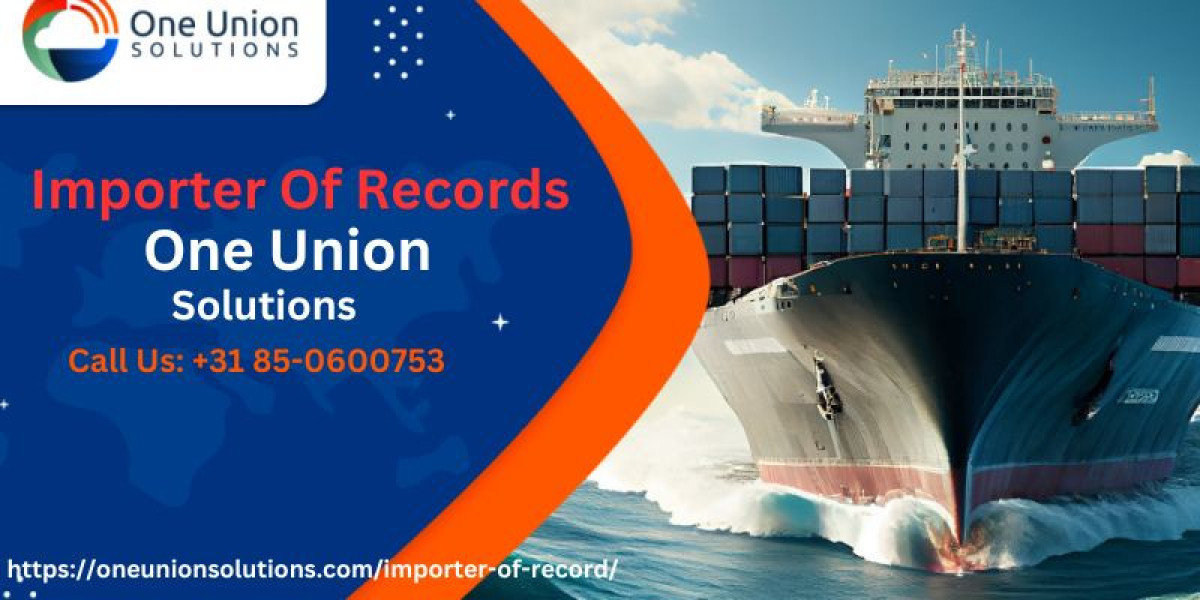Importer of Record Requirements
The Importer of Record (IOR) is a critical player within global trade, ensuring that products imported into a country conform with all applicable rules and regulations. Understanding the procedures for establishing and functioning as an IOR is critical for firms engaged in global trade. This thorough guide will look at the many needs of the IOR, such as legal duties, documentation, regulatory compliance, and best practices.
What is the Importer of Record?
The Importer of Record ensures that imported products comply with the importing country's applicable rules and regulations. This involves making appropriate declarations of products, paying duties and taxes, and complying with regulatory requirements.
Key Responsibilities of IOR
Customs Compliance: Ensuring that all customs requirements are followed, including the correct categorization and value of products.
Tariffs and Taxes: Calculate and pay all relevant import tariffs, taxes, and fees.
Regulatory Compliance ensures that imported products fulfill all applicable regulations, including safety, health, and environmental standards.
Documentation: Preparing and submitting all required documentation for customs clearance.
Record-Keeping: Keeping accurate records of all import transactions for auditing and compliance.
IOR Service in Louisiana
Legal and Regulatory Requirements
Legal status
- Legal company: The IOR must be a legally recognized company in the country from which it is imported, such as a business, partnership, or individual having the legal authority to conduct import activities.
- Registration: The IOR may be required to register with customs officials and get an importer identity number, or a comparable registration number.
Compliance and Custom Regulations
- Harmonized System (HS) codes
Products must be correctly categorized using the relevant HS codes, which determine the associated tariffs and taxes. Staying up to speed on changes to HS codes and ensuring appropriate classification to avoid fines.
- Valuation
The transaction value, or the amount that was paid or payable for the products, is the fundamental technique of customs valuation. If the transaction value cannot be ascertained, alternative approaches, such as the worth of the same or similar products, deductive value, or calculated value, may be utilized.
- Country of origin
Providing certificates of origin or other paperwork to confirm the provenance of the products. Conforming to the requirements of origin for advantageous tariff treatment under trade agreements.
Documentation Requirement
- Commercial Invoices: Includes information about the seller, buyer, product description, quantity, unit price, and total value. Ensure that the information on the invoice is correct and reflects the information supplied in other documents.
- Bill of lading (BOL): A document provided by the carrier that acknowledges receipt of the products and specifies the terms of transit. There are several sorts of bills of lading, including ocean, air, and inland.
- Packing list: Includes specific information about the contents of each shipment, such as weight, size, and packing type. Customs officials use this to compare the contents of a cargo to the commercial invoice.
- Import License: Some products may require an import license or permission, depending on the importing country's requirements. Before shipping the products, the IOR must apply for and secure the relevant permissions.
- Certificate of origin: Verifies the provenance of the products, which is frequently necessary for advantageous tariff treatment under trade agreements. Usually granted by the manufacturer, exporter, or an authorized entity like a chamber of business.
Additional Documents
- Health and Safety Certificates: Food, drugs, and chemicals are examples of products that must comply with health and safety laws. Ensure that the products meet the importing country's health and safety regulations.
- Trade agreements: It may offer decreased tariffs and duty-free entrance. Providing the appropriate documents to demonstrate eligibility for preferential treatment under trade agreements.
Challenges and Solutions
- Regulatory Complexity
- Global variations:
Challenge: Import rules differ significantly between countries, complicating the IOR.
Solution: Learn about and follow the individual requirements of each nation involved in the import procedure.
- Frequent changes:
Challenge: Regulations might change often, necessitating ongoing monitoring and adaptation.
Solution: Implement a strong compliance procedure and hire trade specialists to keep up with regulatory changes.
- B) Financial Risks
- Calculating Duties and Taxes
Challenge: Ensuring that tariffs and taxes are calculated correctly and paid on time to avoid fines.
Solution: Use trade compliance software and hire customs brokers to ensure precise computations and timely payments.
- Cost Management
Challenge: Manage import expenses while maintaining profitability.
Solution: Create efficient cost-cutting techniques and use trade agreements for favorable tariff treatment.
- C) Operational Challenges
- Supply Chain Coordination
Challenge: Coordinating with several parties to enable seamless import operations.
Solution: Improve communication and coordination with suppliers, transporters, and customs officials.
- Shipping Delays
Challenge: Shipping delays due to customs clearance or other reasons might interrupt the supply chain.
Solution: Create contingency plans and have buffer stock on hand to help offset the effect of delays.
Conclusion
The Importer of Record is responsible for ensuring that products are imported in a compliant and efficient manner. Understanding and meeting the standards to become and operate as an IOR is critical for firms engaging with global trade. Businesses may successfully handle import rules by following best practices, utilizing technology, engaging trade specialists, and building comprehensive compliance systems. The complete examination of Importer of Record standards presented in this book provides a comprehensive framework for firms to assure compliance, manage risks, and improve their import processes.



